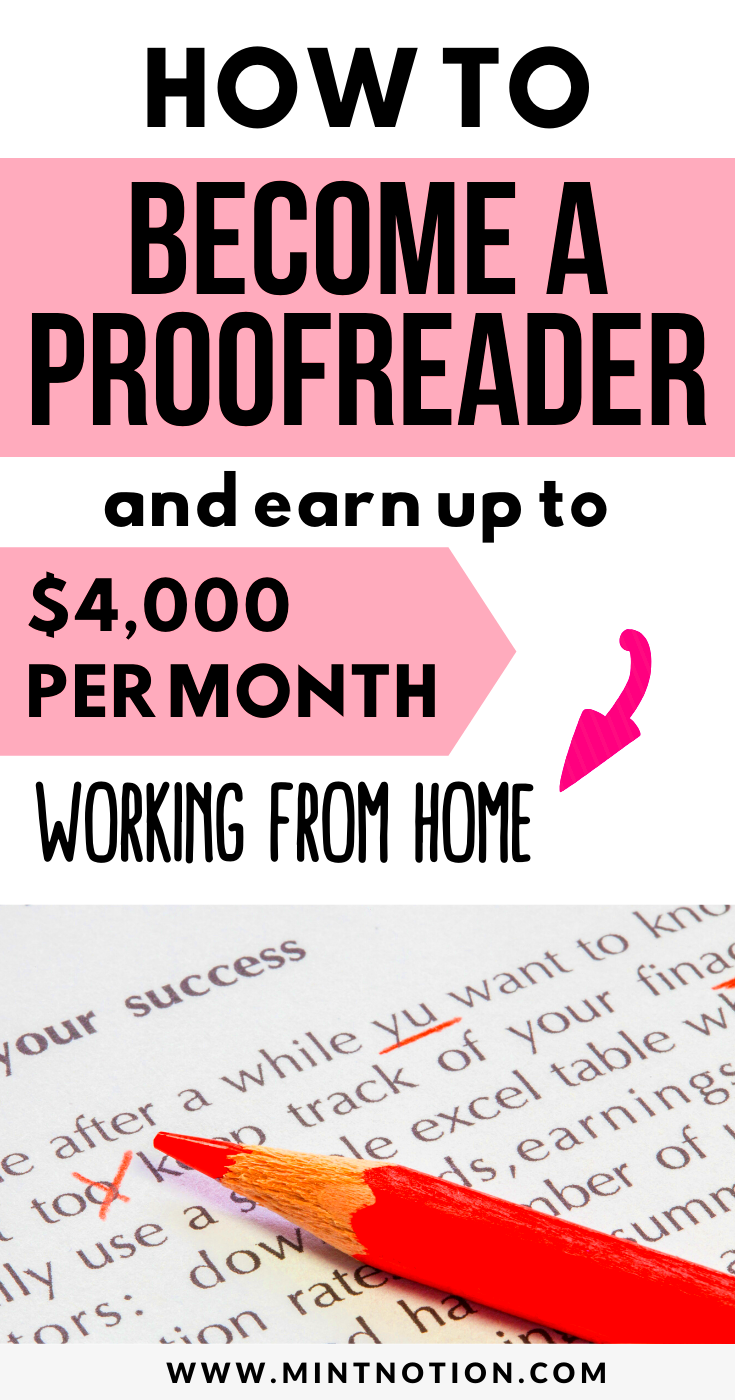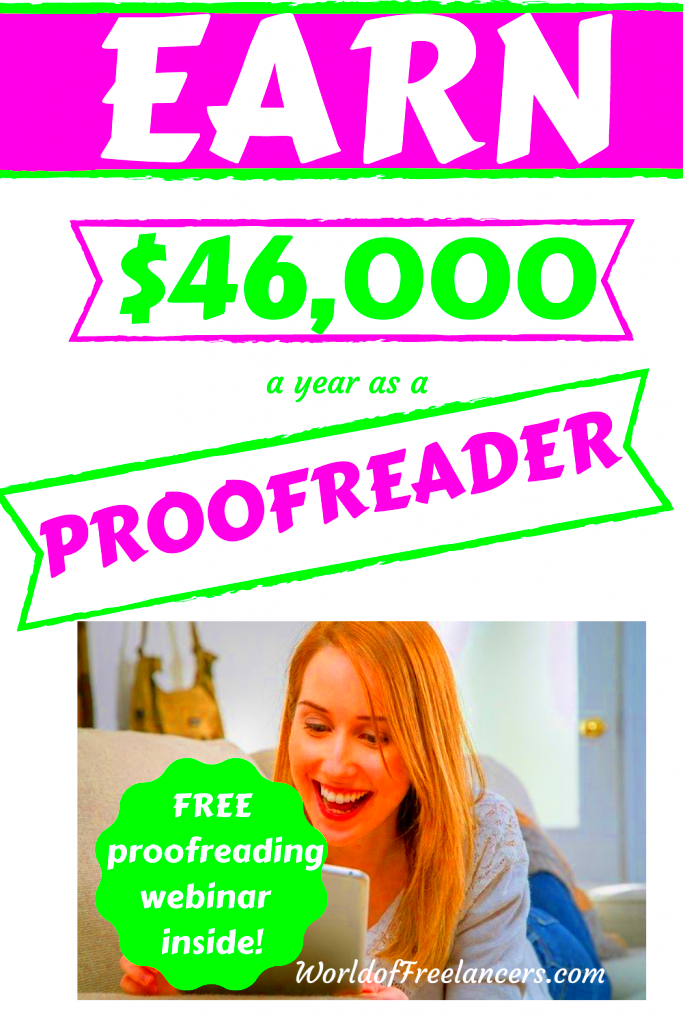Proofreading is a crucial step in the writing process. As a proofreader, your job is to review written content for errors in spelling, grammar, punctuation, and formatting. This role is vital in ensuring that the final product is polished and professional. Proofreaders work across various industries, from publishing to corporate communications, making sure that documents convey the intended message clearly.
Your work helps to maintain the quality of written material, whether it's a book, article, or marketing brochure. Proofreading is not just about finding mistakes; it's also about improving the overall readability and flow of the text. This means that sometimes, you might suggest changes that enhance the content, making it more engaging for the reader.
In short, proofreaders play a key role in the communication process, ensuring that errors do not distract from the message being delivered.
Skills Needed for Proofreading

To be a successful proofreader, you'll need a specific set of skills. Here are some of the most important ones:
- Attention to Detail: You must be able to spot even the smallest errors in text.
- Strong Grammatical Knowledge: A solid understanding of grammar and punctuation rules is essential.
- Excellent Reading Skills: You should read quickly and efficiently while still catching mistakes.
- Time Management: Being able to meet deadlines is crucial, especially if you're working on multiple projects.
- Good Communication: You need to explain your corrections to writers in a clear and constructive way.
Having these skills will help you succeed as a proofreader, whether you are just starting or looking to improve your abilities.
Also Read This: Understanding Fiverr Tweaks: Enhancing Your Freelance Experience
Steps to Start Proofreading

Starting a career in proofreading can be exciting, and there are several steps you can take to get going:
- Learn the Basics: Familiarize yourself with common grammar rules and proofreading techniques. Consider taking an online course or reading books about proofreading.
- Practice Regularly: Find sample texts to practice on. The more you proofread, the better you will become at spotting errors.
- Create a Portfolio: As you gain experience, compile your work samples into a portfolio. This will showcase your skills to potential clients.
- Network with Other Proofreaders: Join online communities or local groups where you can meet other proofreaders. Networking can lead to job opportunities and valuable advice.
- Start Offering Your Services: Look for freelance platforms like Fiverr or Upwork to find clients. Create a compelling profile that highlights your skills.
By following these steps, you will set a strong foundation for your proofreading career. With dedication and practice, you can become a successful freelance proofreader.
Also Read This: How to Remove Bad Review from Your Fiverr Gig
Finding Your First Clients

Landing your first clients as a proofreader can feel a bit daunting, but with the right approach, you can find opportunities that suit your skills. The key is to be proactive and explore various avenues for gaining clients. Many businesses and individuals are on the lookout for reliable proofreaders, so let’s explore some effective strategies to connect with them.
Here are some great ways to find your first proofreading clients:
- Freelance Job Platforms: Websites like Fiverr, Upwork, and Freelancer are excellent places to start. Create a profile that highlights your skills and experience. Start by offering competitive rates to attract clients.
- Social Media: Leverage platforms like LinkedIn and Facebook to network with potential clients. Join groups related to writing and editing where you can showcase your services.
- Personal Network: Let friends, family, and colleagues know that you are offering proofreading services. Word of mouth can be a powerful tool for gaining initial clients.
- Cold Pitching: Research businesses, blogs, or authors who might need proofreading services. Send them a polite email offering your services and explaining how you can help improve their content.
Remember, it may take time to land your first few clients, so be patient and persistent. Each job you complete will help build your reputation and lead to more opportunities.
Also Read This: Can Someone See If You Unfriend Them on Fiverr?
Setting Your Rates as a New Proofreader
Setting your rates as a new proofreader can be tricky, especially when you’re just starting out. It’s important to balance affordability for clients with fair compensation for your time and skills. Here are some tips to help you determine the right pricing for your services:
- Research Market Rates: Look at what other proofreaders with similar experience are charging. Rates can vary based on location, experience, and the complexity of the work.
- Consider Your Experience: If you're just starting, you might want to set lower rates to attract clients. As you gain experience and positive reviews, you can gradually increase your prices.
- Choose a Pricing Model: Decide whether you want to charge per word, per hour, or per project. Here’s a quick comparison:
Pricing Model Pros Cons Per Word Easy to calculate, aligns with document length May undervalue your time for short documents Per Hour Fairly reflects your time investment Clients may want to know how much work you're doing Per Project Clear pricing for clients, easy to budget May not account for all variables in larger projects - Be Transparent: Clearly communicate your rates to clients and explain what services are included. This builds trust and helps avoid misunderstandings.
Ultimately, the right rate is one that reflects your skills, meets market demands, and ensures you feel valued for your work.
Also Read This: How Do I Change My Name on Fiverr?
Building a Portfolio to Attract Clients
Having a strong portfolio is essential for attracting clients as a proofreader. It showcases your skills and demonstrates your ability to improve written content. Here are some steps to help you build an impressive portfolio:
- Collect Work Samples: If you have any previous proofreading experience, gather samples of your work. Make sure to get permission from the authors if necessary.
- Offer Free or Discounted Services: When starting out, consider offering your services to friends or non-profit organizations for free or at a discounted rate. This not only builds your portfolio but also gives you valuable experience.
- Create Before and After Examples: Show the original text alongside your corrections. This highlights your attention to detail and the value you bring to the table.
- Include Client Testimonials: If you’ve worked with clients, ask them for feedback. Positive testimonials can greatly enhance your credibility.
- Design a Professional Portfolio: Use a clean and simple layout to present your samples and testimonials. You can create a PDF document or set up a website to showcase your work.
Remember, your portfolio is a living document. Keep it updated with new samples and client feedback as you gain more experience. A well-crafted portfolio will help you stand out and attract potential clients.
Also Read This: The dos and don’ts of Fiverr gig promotion
Continuing Your Education as a Proofreader
In the ever-evolving world of language and writing, continuing your education as a proofreader is vital. The more you learn, the better you become at your craft. By keeping your skills sharp and staying updated on industry trends, you can enhance your employability and provide better service to your clients.
Here are some ways to further your education in proofreading:
- Online Courses: Platforms like Coursera, Udemy, and LinkedIn Learning offer various courses on proofreading and editing. These courses often cover grammar rules, style guides, and advanced proofreading techniques.
- Books and Guides: Invest in reputable books on proofreading and grammar. Some classic titles include "The Chicago Manual of Style" and "The Elements of Style" by Strunk and White. These resources are invaluable for understanding language nuances.
- Workshops and Webinars: Look for local workshops or online webinars. Many organizations host events that focus on writing and editing skills, which can be a great way to learn from industry experts.
- Join Professional Associations: Consider joining groups like the Editorial Freelancers Association (EFA) or the American Society of Journalists and Authors (ASJA). Membership often comes with access to educational resources and networking opportunities.
By actively seeking to expand your knowledge, you can stay competitive in the field and continue to deliver high-quality proofreading services to your clients.
Also Read This: What Is Fiverr’s Email Address?
Frequently Asked Questions
As you start your journey as a proofreader, you may have some questions. Here are answers to some common queries:
- Do I need a degree to become a proofreader? No formal degree is required, but a strong grasp of grammar and language can help you succeed.
- How much can I earn as a proofreader? Earnings vary widely based on experience and type of work, but entry-level proofreaders might charge between $15 to $30 per hour.
- What types of documents can I proofread? You can proofread a variety of materials, including books, articles, essays, marketing materials, and business communications.
- How do I handle client feedback? Be open and professional when receiving feedback. Use it as an opportunity to improve your skills and understand client expectations better.
- Is proofreading the same as editing? No, proofreading focuses on correcting surface errors, while editing involves improving the overall content, structure, and flow of the writing.
If you have more questions, don’t hesitate to reach out to other proofreaders or look for resources that address your specific concerns.
Conclusion
Becoming a freelance proofreader can be a rewarding career path, offering flexibility and the chance to work with various clients and content. By understanding your role, honing your skills, and actively seeking opportunities, you can build a successful proofreading business. Remember to set fair rates, create a compelling portfolio, and continue your education to stay updated in the field.
With determination and persistence, you can establish yourself as a trusted proofreader. So take the first step, and you may find that this career path opens doors to exciting opportunities in the world of writing and publishing!




